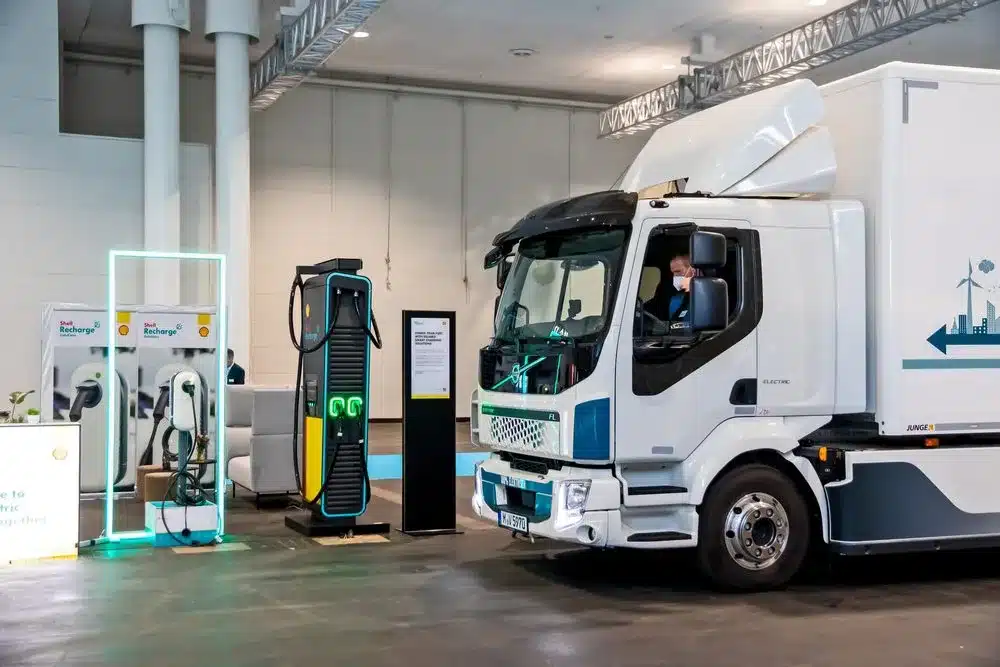This article first appeared on the Magnolia Tribune.

Mississippi’s U.S. Senators, Roger Wicker and Cindy Hyde-Smith, along with three members of the state’s congressional delegation, Trent Kelly, Michael Guest, and Mike Ezell, signed onto a letter Monday opposing the Biden administration’s EV mandate for heavy trucks. The five are part of a coalition of 157 lawmakers. Congressman Bennie Thompson, the only Democrat in Mississippi’s congressional delegation, did not sign on.
The letter urges the Biden administration to reverse course on implementing regulations set forth in the Greenhouse Gas Emissions Standards for Heavy-Duty Vehicles-Phase 3 before they negatively affect the nation’s shipping and farming industries.
The rule dictates that all trucks, tractors, buses and semi-trucks have zero emissions in the near future. According to the EPA, phase 3 of the rule “sets stronger standards to reduce greenhouse gas emissions from heavy-duty (HD) vehicles beginning in model year (MY) 2027.”
“This final rule, which encompasses heavy-duty vehicles ranging from delivery trucks and school buses to tractors and semis, would disrupt the heavy-duty truck industry by forcing the broad adoption of heavy-duty zero emission vehicles on an extremely aggressive timeline, despite these vehicles currently being less than 1% of sales,” the lawmakers stated in their letter.
The release goes on to cite a study that determined it would cost about $1 trillion to effectively invest in an electric vehicle infrastructure to accommodate an all electric commercial fleet. That estimated cost did not factor in the expense of purchasing the electric vehicles.
“Additionally, the cost for an electric semi-truck averages over $400,000 while a comparable diesel Class 8 truck costs around $180,000 – meaning electric trucks cost an average of 122% more than a normal semi,” according to the letter.
It is estimated that there are more than 3.1 million trucks, pickup trucks included, on more than 1.4 million farms across the United States. Combined with the 3.7 million tractors on about 1.5 million farms, farmers will be forced to deal with tighter margins due to the additional expense.
“Not only would this rule harm consumers, but it would also exacerbate consolidation by effectively forcing our small trucking companies out of business that cannot afford this hasty transition to electric or hydrogen powered trucks,” the lawmakers stated.
The congressional coalition predicts that the cost of making those changes will lead to even higher prices on groceries and utilities.
Utility prices would increase due to the anticipated $370 billion investment needed upgrade the power grids to meet electric vehicle demand, the letter reads. That cost does not factor in passenger vehicle needs.
“This unaffordable and unachievable regulation will leave rural communities with grid capacity challenges and limited range versus comparable diesel vehicles. When regulations are rushed and the impacts on the economy are not sufficiently considered, business closures and job losses will result.”
The letter was signed by 29 members of the U.S. Senate and 128 members of Congress.
U.S. Senators Wicker and Hyde-Smith are also co-sponsors of SB 3094, a bill that aims to prevent the EPA from enacting the EV mandate on trucks and passenger cars, as well as potential “future rules that would limit the availability of new motor vehicles based on that vehicle’s engine type.”
This article first appeared on the Magnolia Tribune and is republished here under a Creative Commons license.
Read original article by clicking here.

